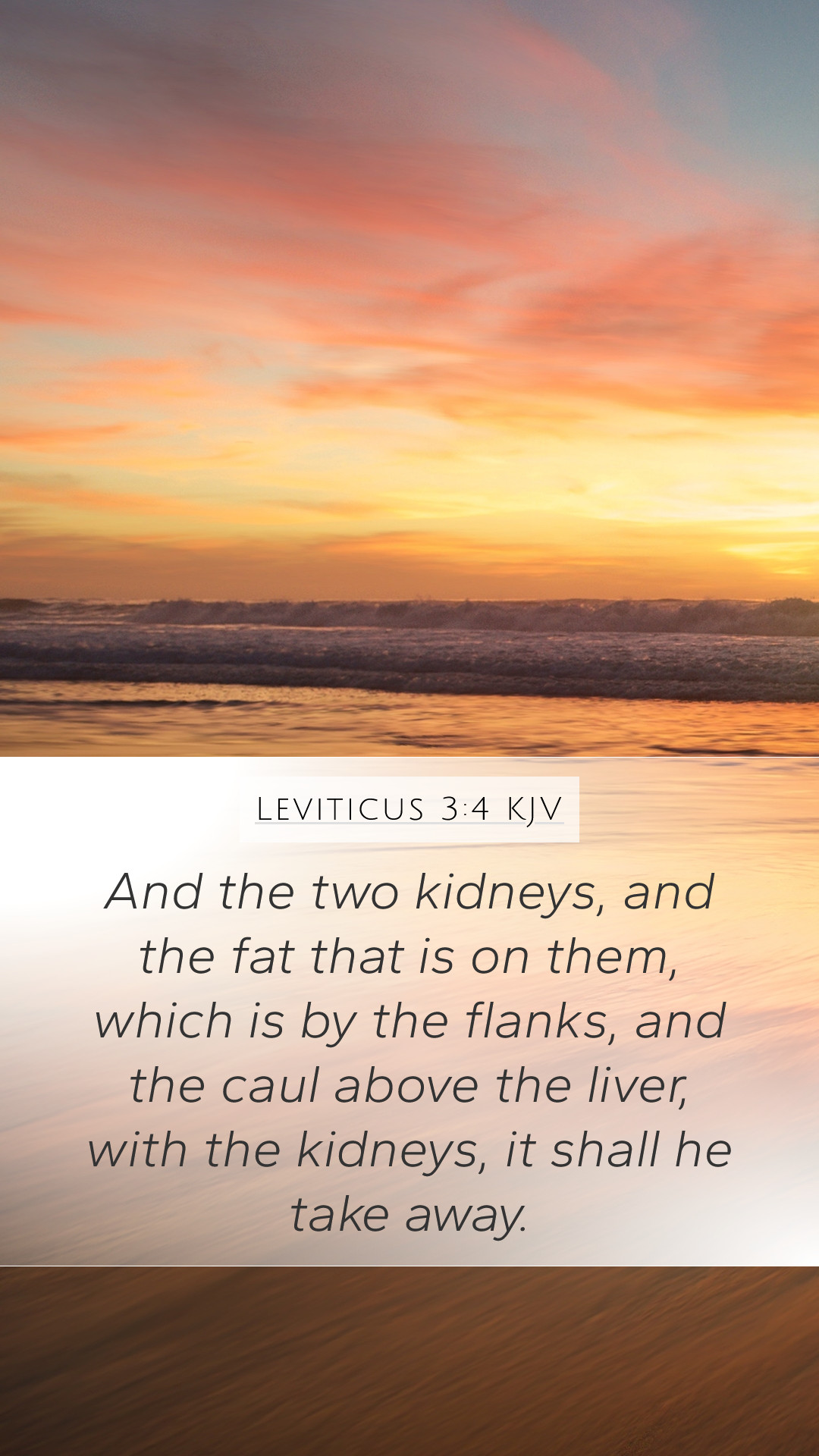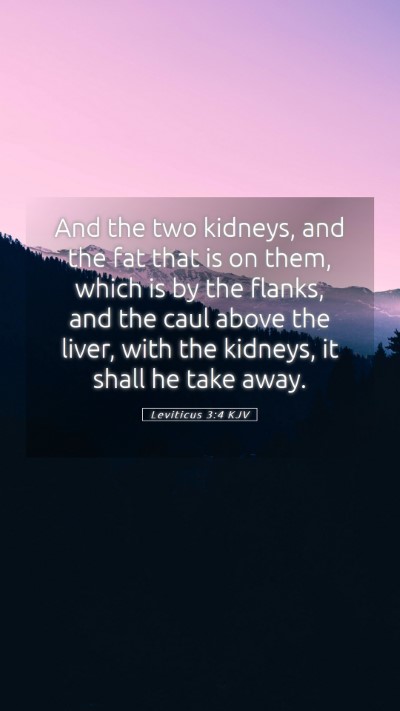Understanding Leviticus 3:4: A Detailed Bible Verse Analysis
Leviticus 3:4 states, "And the two kidneys, and the fat that is on them, which is by the flanks, and the caul above the liver, with the kidneys, it shall he take away." This verse is part of the instructions regarding the peace offering in the ritual sacrifices outlined in Leviticus. These offerings served as a means of establishing and maintaining a covenant relationship between God and His people.
To grasp the full meaning of Bible verses, it is imperative to consider their context, the cultural and historical background, and the theological implications. This verse speaks to the importance of specific parts of the animal that were to be presented before God, indicating both value and devotion.
Verse Interpretation and Commentary
-
Matthew Henry's Commentary:
Matthew Henry emphasizes the importance of these offerings as symbols of peace and gratitude towards God. The specific mention of the kidneys and liver signifies that these were the choicest parts, indicating that God deserves our best. The kidneys were often understood to represent the inner thoughts and emotions, thus reflecting purity and sincerity in the worship.
-
Albert Barnes' Notes:
Albert Barnes highlights the ritualistic nature of the sacrifices. He explains that the kidneys and the fat around them were considered the most desirable parts of the animal, symbolizing the worshipper’s dedication to offering what is best to God. Additionally, the removal of these parts signified purification and the setting apart of the offering for divine acceptance.
-
Adam Clarke's Commentary:
Adam Clarke adds a layer of depth by discussing the significance of the liver and its role in biblical symbolism. He notes that fat, often represented as richness or abundance, is significant for indicating the blessedness one seeks in fellowship with God. Clarke also mentions that this act of sacrifice was a foreshadowing of the ultimate sacrifice made by Christ, who gave His life for humanity.
Key Themes and Insights
Gathering insights from various Bible study resources allows for a more comprehensive understanding of these practices. Here are some of the key themes:
-
Dedication to God: The specific offerings highlight the importance of presenting one's best to God, symbolizing heartfelt devotion and acknowledgment of His greatness in our lives.
-
Covenantal Relationships: Sacrifices were meant to affirm and renew the covenantal bond between God and His people, reminding them of their dependence on divine grace.
-
Purity and Sacrifice: The careful selection of the animal parts demonstrates the need for holiness and the seriousness of approaching God, symbolizing the inner purity one must strive for in their relationship with Him.
Related Bible Verses
This verse is related to several other scriptures that provide a deeper understanding of sacrifices and offerings:
- Exodus 29:13-14 - Instructions on offerings
- Leviticus 1:8 - Significance of the offerings
- Hebrews 10:4 - The inadequacy of animal sacrifices
Applying Leviticus 3:4 to Daily Life
Understanding Scripture, especially complex passages like Leviticus 3:4, can enrich one's daily life. Here are practical applications:
- Offering Your Best: Reflect on how you can give your best to God in various aspects of your life – spiritually, time, resources, and relationships.
- Developing Inner Purity: Examine your thoughts and intentions to ensure they align with your devotion to God.
- Reinforcing Your Covenant with God: Regularly engage in acts of gratitude through prayer, worship, and service to strengthen your covenantal bond.
Conclusion
Leviticus 3:4 is more than a ritual command; it serves as a significant lesson in our relationship with God. Through a detailed analysis and study of this verse, we find that the practice of offering reflects our respect for divine holiness and an invitation to deepen our commitment to God.
Whether in Bible study groups or individual reflection, following the insights from public domain commentaries helps cultivate a richer understanding of the Scriptures and fosters a commitment to applying biblical truths to our lives.


